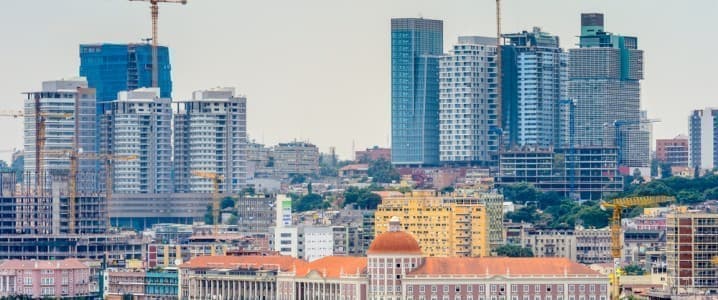
Angola’s state oil company, Sonangol, is preparing to list up to 30% of its shares in an initial public offering (IPO) sometime in the next 24 months in what would be a milestone that could reshape not only the company itself but the country’s broader economic trajectory. For decades, Sonangol has been more than a petroleum producer, acting also as Angola’s financial engine and a political tool as well as a national symbol. The decision to partially privatize the company is, therefore, far more than a market exercise, it is a test of President João Lourenço’s reform agenda and a signal to investors that Angola is serious about change.
The IPO represents the culmination of years of restructuring. Once a sprawling conglomerate with interests ranging from banking and airlines to real estate and telecoms, Sonangol had become bloated and opaque. Since 2017, Lourenço’s government has sought to streamline operations, divest non-core holdings and restore discipline to the company’s finances. The listing is intended as both validation of that effort and a catalyst for Sonangol’s next chapter.
Other national oil companies (NOC) have pursued similar paths. Petrobras in Brazil remains the most prominent example, raising billions of dollars through capital markets while retaining state control. Despite political headwinds and corruption scandals, Petrobras became a technically world-class operator and secured enduring access to financing. Norway’s Equinor and Kazakhstan’s KazMunayGas provide further models of how state-owned firms can combine national priorities with the discipline and transparency demanded by public shareholders.
Sonangol now hopes to achieve something similar. With Angola’s production sliding from a peak of 1.8 million barrels per day (bpd) in 2008 to about 1.1 million bpd today, reversing decline will demand significant upstream investment. Accessing equity markets could supply much-needed funding at a time when global capital for oil projects is increasingly constrained by the energy transition. A successful listing would also bind Sonangol to international reporting standards, corporate governance norms and investor accountability, further distancing it from the inefficiencies of its past.
The IPO cannot be seen in isolation. It is part of a wider push by Lourenço to reduce the state’s outsized role in the economy. Through the government’s PROPRIV program, hundreds of state-owned enterprises and assets, from banks to factories, have been slated for privatization. Sonangol, as the crown jewel, represents the most ambitious step yet. A transparent and credible listing could, therefore, serve as a signal to global investors that Angola is not only open for business but committed to sustaining reforms.
The opportunities are significant, although challenges remain. Investors will weigh Sonangol’s valuation against the backdrop of declining reserves and uncertain long-term oil demand. Governance will also be scrutinized, given the company’s historical entanglement with patronage and politics. Yet partial privatization, if well executed, can be a powerful corrective, binding Sonangol to the discipline of shareholders, while leaving Angola in firm control of its most strategic asset.
The significance of Sonangol’s intended IPO extends beyond Angola. Other African NOCs, from Ghana’s GNPC to Algeria’s Sonatrach, face similar dilemmas of aging production, rising investment needs and constrained public finances. If Sonangol can demonstrate that partial privatization provides both capital and credibility, it may offer a roadmap for peers across the continent.
Africa’s upstream potential is vast, but global capital is increasingly selective. International investors are scrutinizing governance, emissions intensity and long-term resilience. A successful Sonangol IPO could show that African NOCs can adapt to this new landscape, not by abandoning national control, but by blending it with the transparency and accountability that markets demand.
Schreiner Parker, Head of Emerging Markets & NOCs
If executed successfully, the Sonangol IPO could provide Angola with far more than fresh capital. It could catalyze upstream investment, anchor broader privatization reforms and reposition the country in an energy landscape where competition for investment is fierce. For Sonangol, it is a chance to reinvent itself as a disciplined, globally credible operator, much as Petrobras leveraged its market listing to finance Brazil’s deepwater renaissance.
In that sense, the IPO is not just about Sonangol’s balance sheet. It is about proving that African NOCs can evolve to meet the twin pressures of domestic expectations and global energy shifts. For Angola and for the continent, the opportunity is profound. Success would mark the beginning of a new era of capital access, institutional credibility, and long-term competitiveness for Africa’s oil and gas sector.
By W. Schreiner Parker, Head of Emerging Markets & NOCs at Rystad Energy
More Top Reads From Oilprice.com
The Very Real Problem of Fracking Wastewater
Anglo American’s Strategic Moves Reshape Global Copper Landscape
Putin’s NATO Airspace Incursions Are Backfiring



